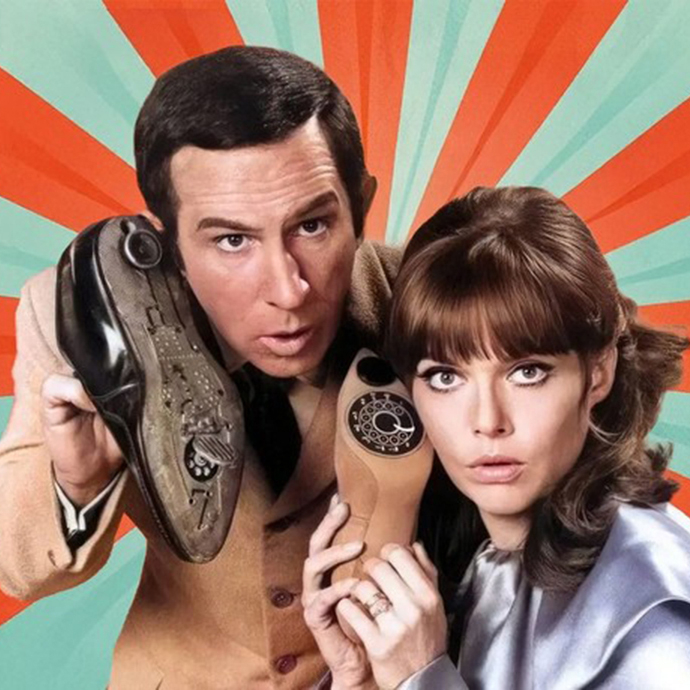Every Wednesday at six P.M., a mass of runners descends on New York City’s Washington Square Park. They are here for the weekly meetup of the TikTok-viral Lunge Run Club, whose tagline is “Run First. #BeersAfter. Find Love.”
Lunge’s weekly three-mile runs—or 1.5-mile “hot walks,” for those so inclined—attract anywhere between 50 and 1,500 people. Singles wear black, while the few poor souls in relationships (usually pressed into service by an anxious solo friend) wear color. Afterward, the group congregates at a bar in the West Village or Chelsea.
Lunge’s founder, 29-year-old Steve Cole, calls the club “the West Side Highway dating app,” referencing the popular pedestrian path running alongside the Hudson River, where matcha-drinking “girlies” and finance bros go to see and be seen. Cole, an investment banker turned fitness influencer, founded Lunge in 2022 and personally directs each run through his megaphone. (In addition to the run club, Lunge also has an app that allows you to match with people who go to the same gym or workout class as you.)

“[Traditional] dating apps do not align with the science behind love in any sort of way,” says Cole, who studied social psychology at the University of Southern California. His goal in creating Lunge was to bring “an in-real-lifeness” to the way young people find their match.
“You cannot date through a screen,” proclaims Cole—and it appears that many young people agree.
According to a 2024 Forbes study, 79 percent of Gen Z and 80 percent of millennials had experienced burnout from dating apps. A 2023 Axios study found that 79 percent of American college and graduate students had stopped using the apps altogether.
In May of this year, Bumble founder Whitney Wolfe Herd, who stepped down as C.E.O. in 2023 to “get back to [her] founder roots” before returning to the role in 2025, admitted in an interview with The New York Times that “the reason Gen Z has abandoned the apps is because they’re getting on the apps and they’re not seeing who they want to see…. They’re feeling rejected and they’re feeling judged.”
In June, Bumble, after operating at a loss for several consecutive quarters, revealed its plans to lay off 30 percent of its workforce. Match Group, the parent company of Tinder and OkCupid, also announced that it would reduce its workforce by 13 percent on the heels of a 5 percent drop in its number of paying users.
The apps are trying to adapt—Tinder launched a “Double Date” feature in June, and Hinge is rolling out A.I. bots to provide “effective coaching for struggling users”—but it may be too late.
In the place of dating apps have come run clubs, whose popularity has been well documented (in 2023, The New York Times reported that they had “exploded” in New York following the pandemic), but also a surge of in-person meet-cutes, including a TikTok trend that involves young women stealing pre-ordered Sweetgreen salads from corporate locations in order to manufacture interactions with attractive finance bros. Activity-based clubs, with programming specifically targeted toward Gen Z singles, have also skyrocketed in popularity.

CityPickle, the operator of several New York pickleball facilities, including 14 permanent courts at Central Park’s Wollman Rink, recently began hosting singles mixers for pickleballers looking to find love on the courts. Co-founders Mary Cannon and Erica Desai say the events always sell out, sometimes in a matter of hours. And it’s mainly thanks to Gen Z and millennials. “The fastest-growing segment of the pickleball market is 25- to 35-year-olds,” says Desai. “There’s a misconception that pickleball is for old people,” adds Cannon. “And that’s just not true.” As one CityPickle-mixer attendee put it, “It feels like, Are you even a person if you’re not trying to play pickleball?”
For many Gen Z–ers, it’s not just about connecting on the court—it’s also about disconnecting from screens and the dehumanizing swipe culture that has jaded them against the apps. “People want to put their phones down,” says Cannon. “Pickleball is the ideal social lubricant. Ten years ago, it was alcohol…. A lot of people are more health-focused and don’t necessarily need or want a drink in hand when they are socializing and meeting new people.”
Gen Z’s fixation on health and wellness likely plays a big part in the in-real-life dating boom. Fifty-six percent of Gen Z Americans say fitness is a very high priority, compared with 40 percent of U.S. consumers overall, according to a 2023 study by McKinsey & Company. And a 2023 Statista report found that only 18 to 20 percent of Gen Z Americans regularly drink alcohol, whereas millennials clock in at 30 to 31 percent.
“Running is, like, literally everyone’s hobby in New York,” says 24-year-old Danuisca Rangan, who attended a Lunge run last fall after moving from Salt Lake City. “I feel like every straight guy loves to run.”
But the phenomenon isn’t limited to fitness.

Remington Davenport, whose NYC Backgammon Club hosts events at trendy cocktail bars and members’ clubs around the city, noticed a big uptick in attendance after she began hosting designated singles’ nights last summer. Davenport founded the club in 2023, after moving to New York and finding the existing backgammon clubs sorely lacking. “The venues were tragically uncool, and the crowd was a lot older. There were no women and certainly no women in their 20s and 30s,” she says. For the club’s first meeting, she forced seven of her friends to attend. Now her meetings regularly get around 100 attendees, and there are more than 5,000 people on her mailing list. “The shift in society with leaving dating apps and wanting to meet people organically [has] definitely played a huge part in the success of my social club,” she says.
“There’s clearly a lot of frustration with dating apps,” says Tommy Flaim, the 31-year-old founder of Silly Pickles, a Chicago-based pickleball league, which also hosts speed-dating cornhole leagues in 14 American cities, including New York, Los Angeles, and San Francisco.
Flaim, also a former investment banker, launched the first cornhole league in Chicago in 2024 after noticing that a lot of young people were joining the pickleball league in order to meet people “IRL.” He’d also been hearing from his single friends who, sick of endlessly swiping on the apps, had tried in-person singles events such as run clubs but found that the lack of consistent attendance and structure made it difficult to get to know people. Not to mention the usual issues: “The attractive people get swarmed, and the [gender] ratios aren’t always precise.” Flaim also realized his pickleball league wasn’t the perfect vehicle for dating, given that matchups were organized strictly according to skill level, with little opportunity for movement.
Cornhole was the perfect compromise—unlike pickleball, cornhole does not require much skill. “The barrier to entry is very low,” he says.
With the help of his female friends—“I call them my sorority sisters”—Flaim went to work organizing a four-week cornhole speed-dating league, with a semi-enforced age range of 25 to 35, where teams of two men play teams of two women. (Though they did have one lesbian cornhole speed-dating league in Chicago, Flaim, who is gay, says there isn’t much of a market for same-sex leagues. “A demographic that’s not tired of the apps is gay men,” he says.)
Flaim knows of at least 10 couples who’ve met as a result of his league, and he says almost 50 percent of participants go on at least one date. His biggest problem is getting people—specifically, straight men—to come in the first place.
“I think it might sound to a lot of guys, like, it’s just kind of stupid,” says Chris Glotzbach, a 32-year-old trader who participated in one of Flaim’s Chicago cornhole leagues earlier this year. “I definitely didn’t go in thinking, ‘This is gonna go great,’ but it was kind of like, Why not? Nothing else has worked.” Glotzbach ultimately went on three dates as a result of the league. Though none turned into a relationship, he still has faith in the process. “I think most of the people that are dating would pay a very awkward meeting if their goal is to find someone.”
Paulina Prosnitz is a Junior Editor at Air Mail


